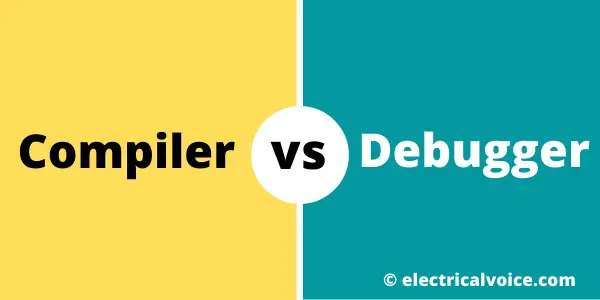Even professional programmers tend to make mistakes while coding. Now imagine if a programmer is writing a 1000s line code and unknowingly ends up making an error at some point in the code; it is then extremely tedious for him/her to find that particular line and rectify his/her mistake. It will be a waste of time and resources.
This error or bug (called so in the coder’s world) could be a minor input/output error or a significant problem that leads the program to crash. Thus before making a program public it is necessary to look into its successful execution and eliminate almost all possible errors. This process can be time-consuming in some cases or simply faster in others.
Being said all above, the important term to understand here is ‘program’. It is necessary to understand what is meant by the program as it is the basis of our topic in this article.
In simple words, a computer program is a set of instructions written by the user in a high-level programming language to give instructions to the CPU to execute the required tasks. These tasks that are written in the high-level language need to first be converted into low-level language for our computer to understand and secondly, they need to be executed error-free. Only then is the successful generation of output guaranteed.
To serve the purpose of the above said requirements compilers and debuggers were introduced. These have gone to various modifications with many features being added and deleted over the years. We will now understand how they are different from each other, to understand their significance while also making a note of their important features.

Compiler vs Debugger
| Compiler | Debugger |
| The compiler converts the source code to equivalent machine code for the computer to understand and execute the tasks defined in the program. | Debugger helps to identify the errors in a program and to fix them correctly. |
| Converts high-level programming language to low-level programming language. | Finds errors in the high-level programming language. |
| It is a software or set of software. | It is a computer program |
| Compilers convert the code at once. | The debugger allows you to run your code step by step and it can halt when it crashes. |
| Languages like C, C++ have compilers | GNU Debugger (GDB), Microsoft Visual Studio Debugger- popular debuggers |
What is compiler?
We write our code in a high-level programming language because it is easier for us to understand it. We, humans, are conformable to type down a set of instructions in this high-level language.
Many platforms or programming languages were introduced overtime of which almost 99% are high-level programming languages. After our comfort was met and satisfied, it was important to ensure that the instructions given by us were understood by our machine.
Our machine only understands machine level language or low-level language. So the conversion between high to low-level language is essential. This has been possible only due to compilers.
A compiler is very difficult software to design and understand. It is a complex software that performs code optimization and code generation.
A compiler is known to perform a variety of tasks of which some of them are pre-processing, lexical analysis, parsing, semantic analysis.
It is also known to transform the input programs into an intermediate representation while also converting the entire source code into equivalent machine code at once. Due to this, languages with a compiler are said to execute more quickly than interpreted languages.
The source is now available in the form of an executable file which is generally hidden from the users and is known only to the computer’s needs. Some common languages using compiler are Java, C and C++.
What is debugger?
Even the smallest error in a code can modify the output drastically. To get an idea about the possible errors our program would generate, the debugger is used. It is a tool used for testing and debugging other programs. This process can take place in two ways: either on an Instruction Set Simulator (ISS) or directly on the same processor. Executing the code on the same processor is however much faster than the former. Debuggers also tend to provide two modes of operations: full or partial simulation.
When a bug is encountered the execution flow of the program stops. Situations called as traps (where bugs are found) are displayed along with their location in the original code. A debugger allows you to run your code step by step, make breakpoints in the application which allows you to examine specific parts of code.
Most IDEs have debuggers inbuilt and this has made the coding process easier as well as efficient. Newer compilers are now designed in a way that they come inbuilt with a debugger. So a compiler performs the task of both debugging and compiling.
Author
Shriya Upasani
MIT World Peace University
